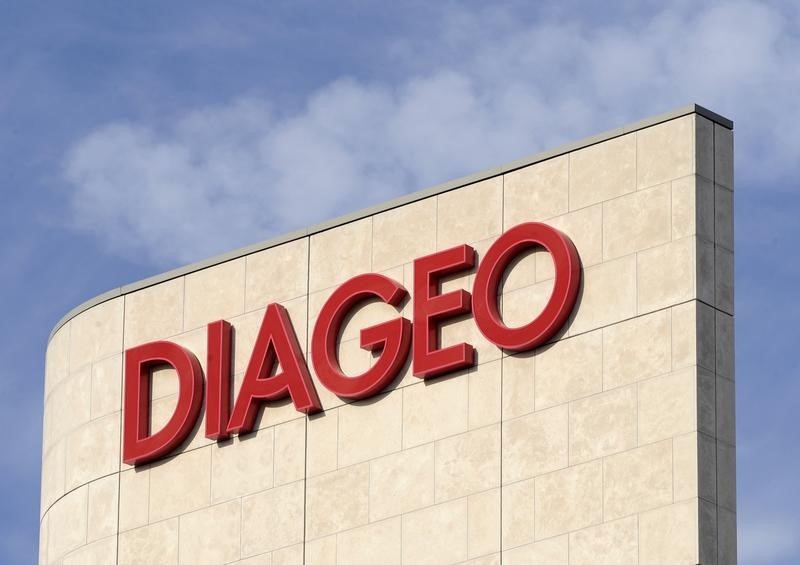Proactive Investors - Has a reality check on the so-called ‘premiumisation’ trend in the beverage sector caused British multinational alcoholic drinks supplier Diageo PLC (LSE:LON:DGE) to become one of the worst FTSE 100 performers over the past 12 months?
Premium, or ‘reserve’ brands, as Diageo has historically called them, include the likes of Johnnie Walker Blue, single malts, Don Julio tequila and Zacapa rum.
Not only do they come with higher price tags than Diageo staples such as Guinness and Smirnoff, they come with higher margins too.
RBC Capital Markets estimates these products earn an earnings before interest and tax (EBIT) margin 700 basis points (that’s 7%) above the group average.
This, however, presents a problem for Diageo- reserve sales are steadily falling. “We estimate that the proportion of sales from high-end reserve brands fell from 29% in 2023 to 27% in 2024. We expect this decline to continue,” according to RBC analysts
They added: “Were Reserve Brand sales to fall to 20% of the group, we estimate that this would not only put the 5-7% revenue growth guidance (even more) out of reach, but also weigh on margins.”
RBC’s summation is at odds with the ‘premiumisation’ narrative espoused by Diageo’s management.
As chief finance officer Lavanya Chandrashekar told investors in July: “We are confident that premiumisation continues to be a tailwind for the spirits category, although this may not be immediately apparent from Diageo's numbers.”
Chandrashekar highlighted destocking trends in the America’s as a reason for the recent decline in reserve brand sales.
But while RBC agreed that “it's probably unfair to say that 2024 was characterised by a sudden, sharp bout of downtrading”, the bank added that “the significant slowing in premiumisation has been going on for longer than Diageo (or other spirits companies) acknowledged at the time”.
In other words, pre-2024 premiumisation sales, particularly in the ‘super-premium+’ product category, may have been overstated because retail customers had a tendency to overstock their spirits cupboards.
Now they’re finding it harder to move this surplus stock, which has cast doubt over the extent of the post-Covid, low-interest-rate era premiumisation altogether.
Where does this leave Diageo? In a bit of a pickle, perhaps.
Time for a rebrand?
Shares are trending in the wrong direction, and some analysts suspect this is due to Diageo’s ‘affordable luxury’ valuation premium coming to an end.
The answer, according to RBC, lies in a bit of rebranding at the investor relations level.
“The 'affordable luxury' investment case is threadbare. With a new CFO and IR joining imminently, Diageo has the opportunity to reset expectations based on a future as a conventional staples business.
“This should involve kitchen-sinking revenue and profit guidance, a prerequisite of repairing investor confidence.
In share-price terms, this could be more than offset by moderating both fixed and working capital investment.”
RBC continued: “By embracing what we regard as a more realistic outlook, Diageo could materially cut back its investment in maturing inventory (which we estimate is $1bn higher
than needed) and capital expenditure, which is running well in excess of historical levels.”
Will Diageo heed this advice? That remains to be seen.
In the meantime, Diageo’s fairly bloody share repricing (13% down year to date, 28% down year on year) may have been overcooked.
RBC now has a ‘sector perform’ rating with a 12-month price target of 2,400p, up from 2,100p previously.
As of Tuesday, 13 August, Diageo shares were trading at 2,446p.
